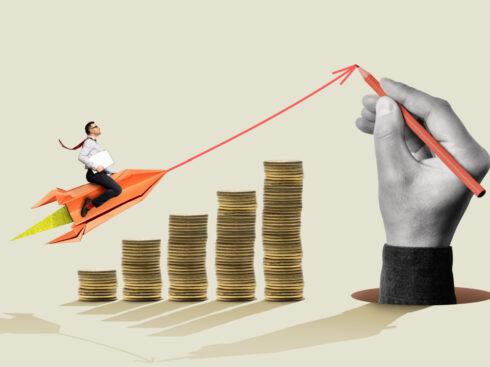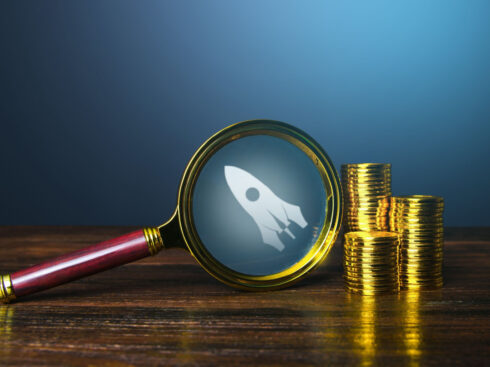A shifting consensus around what a “seller” founder looks like.
It is often said that there is an engineering bias in Silicon Valley, but in reality, it’s a bias towards doers over talkers, of execution over ideas.
This is why you’ll frequently here the refrain that MBAs make bad startup founders, because MBAs are oriented towards administration and management (talking) over designing, programming and growth hacking (doing).
That doesn’t, however, mean that engineers always make the best startup founders either. While it’s next to impossible to imagine a great founding team that doesn’t have at least one engineer, increasingly, it’s becoming just as hard to imagine a great founding team that is comprised solely of engineers.
You can visualize the requisite skill set for a founding team as a pendulum that swings over time depending on the macro-circumstances. Twenty years ago, the technical costs of building a product were so enormous, that it made sense to stack your team with engineers and figure out your business later after you’d raised your $20 million A round; to load up on business guys prematurely would have been putting the cart before the horse. When Silicon Valley got overheated in the late 90s, VCs were writing checks for business plans with no product, so all the business guys wanted to start companies too—and we all know how that worked out.

Over the last decade however, the cost of building a product has asymptotically drifted towards zero. Your main cost is time and the certainty that comes with a steady paycheck. With the ascendancy of the full-stack developer, you can switch between web, mobile and native without necessarily having to switch people. With technical costs going down, one of the biggest challenges a modern-day founding team will face isn’t getting the product built—although that is and always will be hard—it’s getting distribution once you’ve built a minimum viable product, nailing the killer user experience and putting your product into the hands of real people quickly.
Maybe this explains why the greatest founding teams of all time have almost always included a builder and a seller.
Think Jobs and Wozniak, Allen and Gates, Ellison and Lane, Hewlett and Packard, Larry and Sergei, Yang and Filo, Omidyar and Skoll. –@Naval
Naval Ravikant’s post from four years ago remains the single most clear articulation of why the best founding teams require a builder and a seller, and why two founders is the magic number. But if two is the magic number (and I think it is), then what do these two ideal founders look like in 2013? What attributes do Founder A and Founder B have that make their odds of success higher than average?
Founder A is a full-stack developer. I’m not going to spend a lot of time describing the “builder founder” because you know what he looks like—he’s Mark Zuckerberg in The Social Network hacking away furiously at 3AM. It’s the killer combination of engineering genius, passion and natural curiosity that get’s channeled into building great products. And what he doesn’t know, he can learn. Boom.
The sea change that has taken place in the Valley over the last few years is a shifting consensus around what the “seller” founder looks like.
The Full-Stack Marketer
Up until fairly recently, Founder B looked like a mini-me of Founder A—an engineer who could help build the product, but was less socially awkward enough to handle conversations with potential customers and investors and who could hopefully learn to sell over time.
This almost myopic obsession with product development at the expense of product distribution has lead to two epidemic problems in the Valley: too many startups building bad products people don’t want and too many startups building great products that people never find out about.
Earlier this month, Dave McClure lamented on the lack of focus on distribution in a series of rants on Twitter, and I think he is right on.
 @DaveMcClure on marketing illiteracy of startups
@DaveMcClure on marketing illiteracy of startups
Enter the new ideal cofounder for the full-stack developer, the full-stack marketer, who spends long, ramen-fueled days switching between editing .PSDs in Photoshop, wirefaming UI/UX iterations, building marketing pages with product positioning, setting up newsletters in MailChimp, answering support emails and showing real people your product everywhere he goes (the store, the bar etc.)
A founder who can just do “sales” in the traditional sense isn’t going to cut it anymore. So much of the “selling” these days is in the design and the user experience of the product that the full-stack marketer must be able to push pixels with the best of them. The “seller” founder who can design is able to elimate the gap between product and marketing and narrow the wait time between generating ideas and executing on them.
Over the next few years, I expect that we will see a greater degree of consolidation around this new consensus as it’s empiracally put to the test. I believe this natural marriage between the Full-Stack Developer and the Full-Stack Marketer will work because it combines two complimentary and necessary skill sets and anchors it around the product by making each a stakeholder in the product’s creation. The developer owns the building aspect (the code) and the marketer owns the selling aspect (the design). Like the beginning of any great family, this product-oriented union sets a standard that becomes embedded in the culture of the company, a culture that will attract like-minded doers and repel the talkers that will just be dead-weight— and a culture that ultimately will have the best chance of winning.
 This is a guest post by @Kyle Tibbitts, Cofounder @HoverApp, Marketing @ThisLife (Acquired by @Shutterfly), Product design and distribution, Studied @UCBerkeley, Worked at the @WhiteHouse
This is a guest post by @Kyle Tibbitts, Cofounder @HoverApp, Marketing @ThisLife (Acquired by @Shutterfly), Product design and distribution, Studied @UCBerkeley, Worked at the @WhiteHouse


























